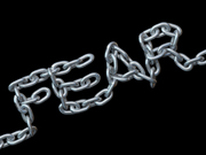 I have spent some time asking for feedback from moms about what their greatest fears were (or are) regarding childbirth. There are several that came up again and again, and today's post will address one of those as I continue this series on birth and fear. Fear Number 2 is this: "What if my wishes are not respected? What if no one listens to me and what I want for my birth and my baby?" Childbirth is deeply personal, and most women, as soon as they are aware that they are expecting, begin to feel very protective of that little person growing inside of them! After all, this baby is not only part of you, but you are feeling the weight and responsibility of taking care of yourself in a totally new way! This is the first step into motherhood: You are responsible for another human being! Here are a few ways to help you have some control over the birth process (because let's face it, birth is completely unpredictable!) and help make your wishes known and heard. Have a birth plan. Let me first preface this point by saying that there is no way to completely plan for childbirth. If there's no necessary reason for a planned induction or cesarean section, then the expectant mom is watching the days tick by on the calendar wondering if today is the day her baby will arrive. This can be a grueling time as her body aches, she's hardly sleeping, she's filled with nesting urges (sometimes at the oddest times) and is feeling the need to get her bag packed (if she's having her baby in a hospital or birth center) and the nursery stocked. The good news is pregnancy lasts approximately nine months, so there's lots of time to plan and prepare! A birth plan is one thing a mom can do in advance that will help her feel more "in control" of what happens to her and her baby once the delivery is imminent. Birth plans are a great tool, and most doctors and nurses are respectful of them if they are kept "short and sweet." By that I mean that it's not always a great idea to walk into the hospital or birth center with three typed, single-spaced pages of details for them to try to follow. Many women don't always realize that doctors, midwives, and nurses are often tending to multiple patients on their shift, and so they really won't have time to read every detail. Here are a few pointers regarding the birth plan:
Stay flexible. As I stated before, there is absolutely nothing that is predictable about birth. So many things can and will happen that may alter your perfectly laid plans, and for those of us that have a hard time "letting go" this can be very difficult to handle. Let me share a personal story with you to underline this point. With the birth of my second child, I had a plan. Everyone knew my wishes, and I expected that it would pretty much be a repeat of my first-born's birth. It was the drug and intervention free birth that I had hoped for, and I assumed all would work out the same with my second. But as the birth progressed, it was becoming abundantly clear that my baby boy was not going to cooperate with that plan! After hours and hours of no progress and doing all I could naturally to bring on contractions (by now my water was already broken), it was clear that using pitocin to stimulate labor was necessary. The pitocin definitely brought on more consistent and strong contractions, however, my doctor soon realized that my baby was not in good position because of the immense pain in my lower back, nor was his head in optimal position to help further dilation (I was "stuck" at 4 centimeters dilated and he was apparently stuck too in poor position!). After a couple hours of pitocin, I was not progressing and was getting frustrated by the minute. The time came when the doctor knew that I was getting exhausted. I wasn't coping well. The baby started to show signs of distress. I was not tolerating things well. This whole progression of events was something I knew could happen but I was not prepared for it happening to me. At that point, I was at a fork in the road. The doctor suggested an epidural, in hopes that I could relax a little and rest, but even more, that my pelvis would relax and the baby could descend. I'm grateful to say that the epidural was effective. Had the final stages of birth gone any longer or gotten any harder, I would have likely ended up having a cesarean section (the doctor said I was moments away from needing one). It was not what I had planned. I had very mixed emotions about how things went with that birth and it took me a while to reach a place of acceptance for what it was instead of what I wanted. The point is this: I was so thankful I had a support system of people who took my hand and said, "We need to be flexible. What you are trying to do is not effective and we need to change course. You're not a failure. You're doing the best thing for you and your baby." As it turned out, an epidural was the best thing for me and my baby. And flexibility was key. Have support. You may notice a recurring theme here, and it's not just because I'm a doula. The fact is, birth outcomes are significantly better and more satisfying when you have a doula at your side. A doula, along with your partner, will know your wishes before the birth takes place and be able to support you every step of the way. She will assist you as you navigate the birth process and help you make informed decisions as things progress. She will encourage you and be your biggest supporter as she partners with your care providers to help you and your baby receive the best care possible. She will make sure you feel heard and respected, and will encourage you to find your voice when you may be afraid to speak up for yourself. I believe that if you are proactive and you've taken the time to formulate a birth plan, commit to being flexible through the labor and have an excellent support system in place, you can be confident that you will be heard and your wishes will be respected when the time of your little one's arrival is upon you. Thanks for reading! ~Happi  Often, when I meet with clients, especially new parents, the topic of fear comes up. It is such a normal thing for thoughts of birth to invoke anxious thoughts. In general, I think most people fear the unknown, and birth is almost always unpredictable. Many people don't know that there is a link between fear and pain in childbirth, and so I thought it may be helpful to address the top 10 most common fears moms have. In the next 10 posts, my desire is that I can make some suggestions on how to best cope with those fears as they creep in, in hopes that it will encourage my clients and readers in their own pregnancy and birth journey. Fear #1: What if I can't cope with the Pain? One of the number one concerns that breeds fear in moms is the concern that they won't be able to manage or cope with the pain that comes with childbirth. For first-time moms who have probably heard many "horror stories" from well-meaning friends and relatives, this is probably one of the most anxiety-producing concerns throughout pregnancy. Perhaps she's had a baby already, and the memories of a traumatic birth still play over and over in her mind as she remembers it. The last thing she wants is a repeat of that experience. Maybe she's endured abuse in her past and the fear of experiencing pain in such a private place in her body has her completely dreading the experience. And so, as mom's due date looms, she is becoming increasingly preoccupied with fearful thoughts, and sometimes she may even feel as if they are overwhelming her mind and keeping her awake at night (as if she needed any more help with this!). She may worry that she will become so distraught over the pain that she won't be able to keep going or want to give up altogether. If she's wanting a drug-free birth, she may fear that if she ends up asking for an epidural, it will make her appear weak or that she's failed in some way (more on this topic to come!). The reality is, pain is part of childbirth. There's no way to escape it, but there are ways to manage it. Knowledge So what's a mom to do when those fears of pain become a reality in labor? First, managing pain comes before the labor begins. One of the greatest antidotes to fear is knowledge, and so I recommend that pregnant women become voracious readers and researchers on all things birth. Some of my favorite books on the subject are "Ina May's Guide to Childbirth" by Ina May Gaskin, "Birth with Confidence" by Rhea Dempsey, "The Thinking Woman's Guide to a Better Birth" by Henci Goer, "Birthing from Within" by Pam England, "Childbirth Without Fear" by Grantly Dick-Read, "The Birth Book" by Dr. Bill and Martha Sears, and "When Survivors Give Birth" by Penny Simkin and Phyllis K. Klaus (more on the topic of sexual abuse survivors and birth to come as well). As a woman gains knowledge, she becomes armed with important information and, most importantly, affirmation, as she wades into the waters of the unknown. Daily Affirmations Secondly, she can begin to positively affirm herself on a daily (or hourly!) basis. She may want to post things around her living space where she is likely to be the most. Simple 3X5 index cards with encouraging words written around her may prove to be very empowering. A few ideas to write: "Women all over the world are birthing with me." "My baby and my body are working together in harmony for a safe and gentle delivery." "I have complete confidence that my body is working perfectly." "I believe I can and so I will." "The power and intensity of your contractions cannot be stronger than you, because it is you!" "I trust in my ability to birth my baby." "The pain that you've been feeling can't compare to the joy that's coming (Romans 8:18)." "My courage is stronger than my fear." "It is not pain. It is power." As she begins to break the cycle of fearful thoughts and instead replace them with affirming, empowering thoughts, she will find that she begins to feel more peaceful instead of worrisome. If she prays or has people she can pray with, prayer is a powerful tool that can turn those fearful thoughts off instantly. If the fearful thoughts return, repeat as necessary! Talk Next, she can talk to trusted friends, relatives or professionals to help her work through her fear of pain. Sometimes, saying aloud the things we have kept hidden inside can be one of the most healing things we can do. As she works out her fears in a safe place with people who will love and not judge her, listen and not try to give advice, she will find that her fears begin to abate and peace will hopefully replace where the fear used to be. If sexual abuse has touched a pregnant woman's life, I strongly recommend she find a great counselor who has experience in working with pain and trauma from abuse. Hire a doula Finally, she should hire a labor doula. Doulas are skilled at helping moms before, during, and after the birth in processing their fears, especially those related to pain. If pain is a major fear for the pregnant woman, a doula is a necessity. Her job is to encourage, provide comfort measures, and be a support system throughout the entire process for the woman. A doula will serve her well and be a strong guiding force throughout the birth and beyond. What are your fears, past or present? I would love for you to share your thoughts by leaving them in the comments of this post. Stay tuned for the part 2 as we talk about fears relating to being out of (or losing) control in childbirth. Thanks for reading! ~Happi  Every year as Mother's Day approaches, I'm always reflective. My husband and boys always give me cards and seek to make the day special in some way for me. I have to be honest and tell you that I always seem to look back on the previous year of Motherhood and question myself. Was I good enough? Attentive enough? Did they know, beyond a shadow of a doubt, that I love them unconditionally and sense by my words and actions that I do? Was I enough? If you're a mom, you know what I'm talking about. I know you do. Because every one of us feels this at some point in our journey of motherhood. I don't know a single mom that feels they are doing it all right. We've all felt the sting of harsh words we've spoken, regret over the way we handled a situation, the pull of priorities as we go about our day, the guilt of just wanting to fall into bed when they want just one more snuggle, mom. The list could go on. You can fill in your own blank: I wish I had ______________________. It's hard. It's so, so worth it. But it's hard. Nobody can prepare you for how very hard it's going to be. This is where having a community of other women around you, who understand this journey, becomes so crucial. I hope that you have friends or family around you who support and encourage you. If you don't, may I gently suggest that you reach out to groups around you, whether you find them at your local church, mom's play groups, mom's support groups (such as breastfeeding/babywearing, etc), or in your own circles. If there isn't a group that exists, maybe you could consider starting one. It doesn't have to be fancy. Perhaps it's simply a small group of you having coffee together while the kiddos play in the back yard. The truth is, we were never meant to be islands. We are hard-wired for community, and we need each other. We need people around us who won't judge us when we tell them, through tears, how much we are struggling. We need to know we aren't alone, that we are safe, and cared for. And we need to know that we are enough. Mom, you are more than enough. Your kids have been chosen for you, and you for them. And while there are many days that you are painfully aware of how imperfect you are, let me reassure you: You are perfect for them. Happy Mother's Day! |
AuthorHappi loves serving families in the Northwest Suburbs of Chicago as a labor doula and childbirth educator. When she's not at a birth, she loves spending time at home with her loving husband and homeschooling her sons. She also finds great joy in serving the Lord at her church and teaching children about the love of Jesus! Archives
July 2024
Categories
All
|


 RSS Feed
RSS Feed